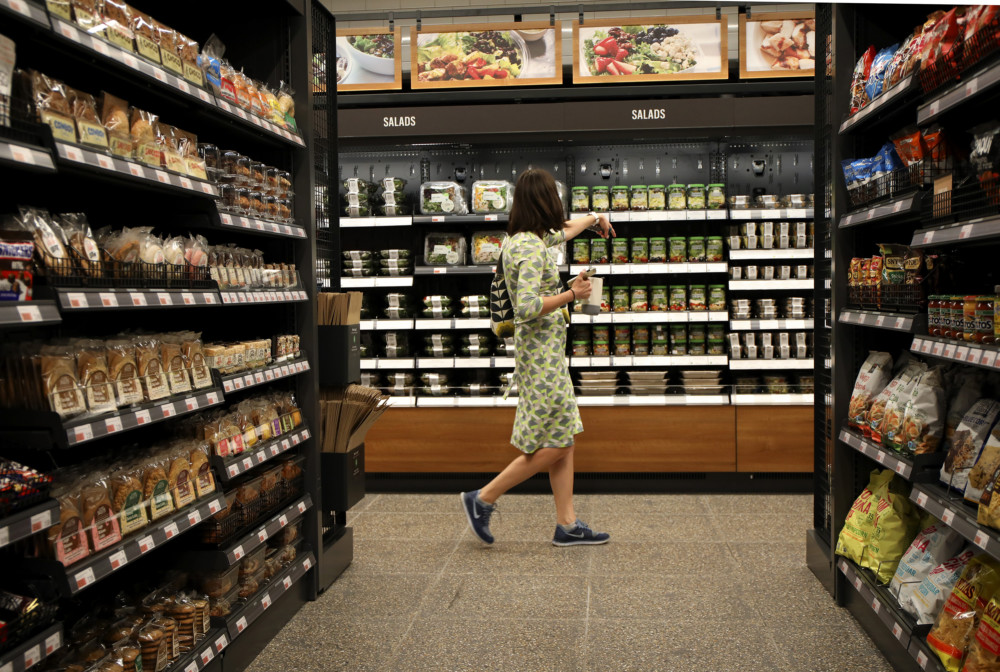By Mary Wisniewski
Bankrate.com
WWR Article Summary (tl;dr) The discussions on the pros and cons are mounting ahead of no-cash policies becoming more widely embraced here in the United States.
Bankrate.com
If you’re buying an ice cream at Van Leeuwen, a taco at Dos Toros or a salad at Sweetgreen, you might encounter something unexpected when it’s time to pay: your cold hard cash getting declined.
In other countries, like Sweden, this would feel like an ordinary day. But in the U.S., the experience could feel extraordinary. If anything, you might expect a cash-only sign.
Here, cashless retailers are rare. And yet, concerns surrounding no-cash policies are already sparking a fiery debate and some resistance. It’s been an illegal practice in Massachusetts for decades. And in July, D.C. city councilman David Grosso co-introduced a bill that would ban cashless restaurants.
The discussions on the pros and cons are mounting ahead of no-cash policies becoming more widely embraced.
“It’s the sort of thing that might just sneak up on people,” says Susan Grant, director of consumer protection and privacy at the Consumer Federation of America. “Before you know it, you may have a trend and not have rights in place to protect people who want to pay in other ways.”
The pros and cons of cashless stores
Supporters of cash-free retailers say it saves people time: the checkout line moves faster, and employees no longer have to count the bills at the end of their shifts or deposit the funds at the bank. They argue that eliminating cash is safer for their employees and that it is more hygienic.
us overnight pharmacy https://buynoprescriptionrxxonline.net/us-overnight-pharmacy.html over the counter
Those opposing the cash ban believe the model discriminates against consumers without bank accounts or credit cards. They also worry that it eliminates a payment method some people use to budget or rely on to remain off the grid from prying eyes.
While it’s still unusual, retailers with no-cash policies are expected to increase slowly but surely. Danny Meyer, founder and CEO of the Union Square Hospitality Group, said in June that he had other cashless restaurants coming in addition to the four that already in existence.
It’s happening for plenty of reasons, including employee safety. After acknowledging the socioeconomic implications, Meyer wrote in a LinkedIn post: “We take these hospitality concerns very seriously and carefully weighed them when initially embarking on this process. But as an organization devoted first and foremost to our employees, we determined that the benefits for our team, particularly their safety, outweighed the unintended side effects for a small segment of our guests.”
Then there are evolving consumer behavior patterns. You are buying stuff with prepaid cards, credit cards, Apple Pay and more. As you migrate to paying for things in other ways, the cost of accepting physical cash becomes higher for retailers. While they take a hit on card fees, they also have to pay to support cash, like getting pickups for money.
In some scenarios, it’s a necessary part of their business model. Amazon Go, for instance, requires a cashless experience to deliver on its promise of a checkout free store. A cafe near Brown University requires college students to pay with their personal information, for another.
It’s also quite common in other contexts, like making purchases on an airplane.
When the payment becomes problematic
Cash has managed to endure in spite of all kinds of payment options popping up. According to a CreditCards.com survey, 45 percent of consumers who have rewards credit cards prefer to pay in cash for purchases under $10.
But the stakes of an increasing amount of cashless retailers are much bigger than personal preferences for small-ticket items: Retailers are in danger of discriminating on who can shop at their stores.
“Not everyone has a credit or debit card,” Grant says.
There are other options, like prepaid cards, for those without bank accounts.
But some consumers may not want to use those either. Maybe trust is still an issue, or privacy concerns are a barrier. In using a mobile app or a card to pay, you are revealing where you shop.
It’s for reasons like this that Jay Zagorsky, who teaches at Boston University’s Questrom School of Business, has been worrying about the longer-term implications for some time.
“Becoming a cashless society is very hard if you’re poor,” Zagorsky says.
It also raises privacy concerns and raises the stakes of what happens when disasters strike. “Cash doesn’t need a computer system,” he says.
How widespread will it become?
Whether cash-free retailers would even become a mainstream trend in the U.S. is still a matter of debate.
Andrew Wind, a principal product manager at Worldpay, expects checks to go before cash. Furthermore, he can imagine retailers incentivizing digital payments more than banning cash outright. “Maybe it’s not a hard line in the sand,” Wind says.
They’re in the business of pleasing customers after all.
Craig Shearman, vice president for government affairs public relations at the National Retail Federation, says going cashless is the opposite of what most retailers would do. One big reason: Retailers pay a fee for credit and debit card swipes.
“Consumers are going to see this so rarely that it shouldn’t be a cause for concern,” Shearman says.














































































































































































































































































































































































